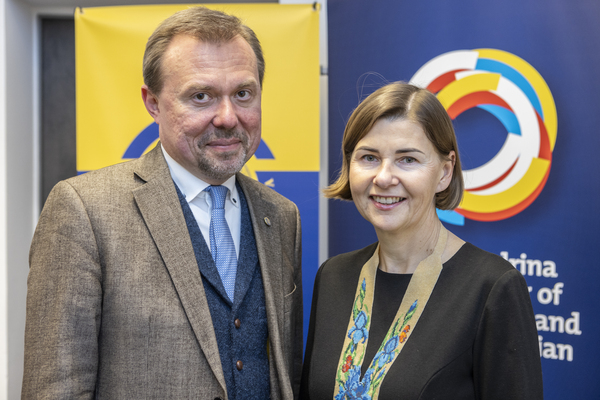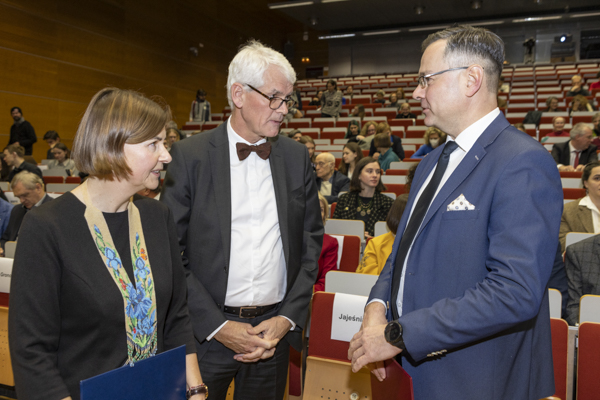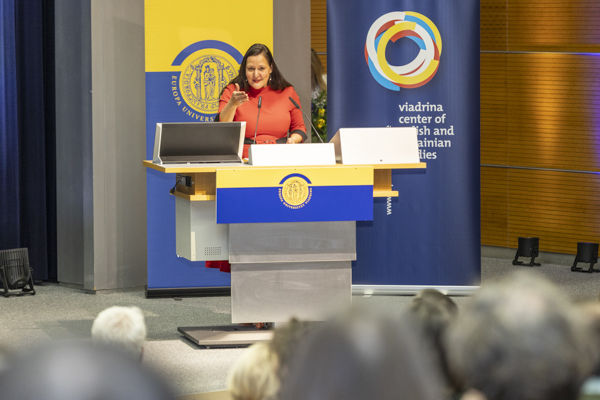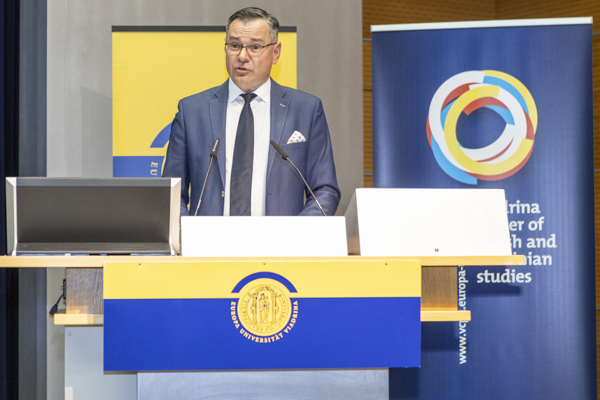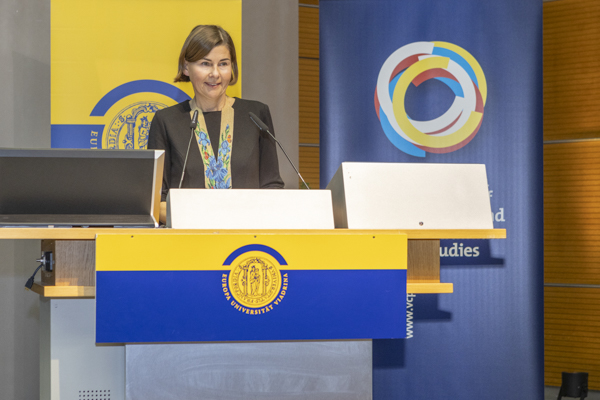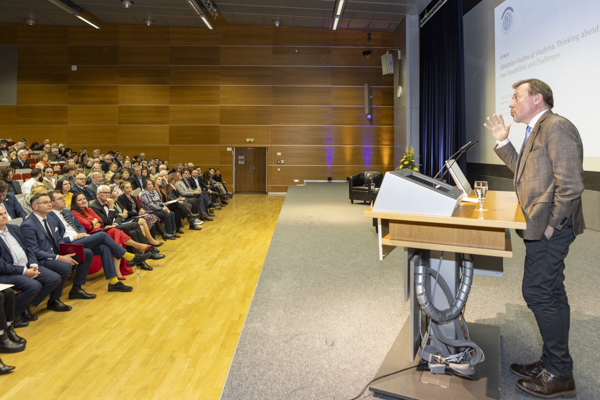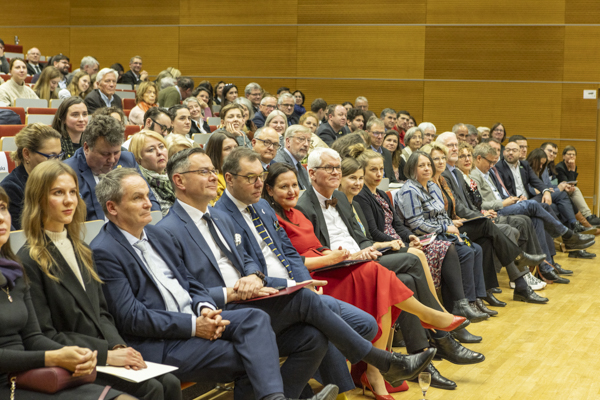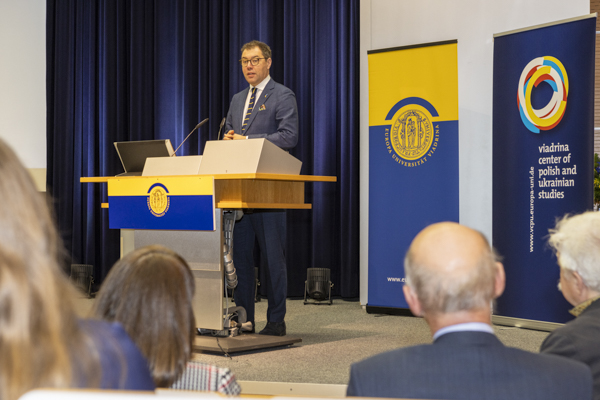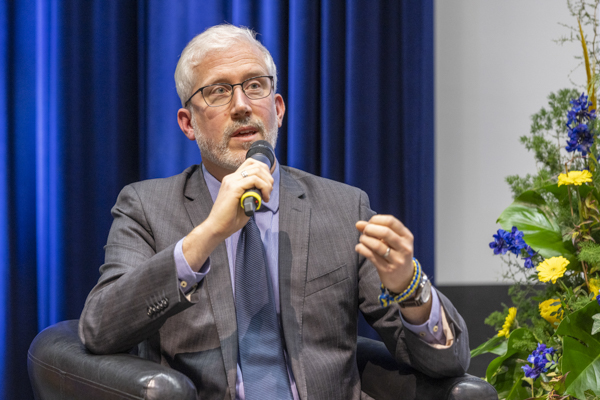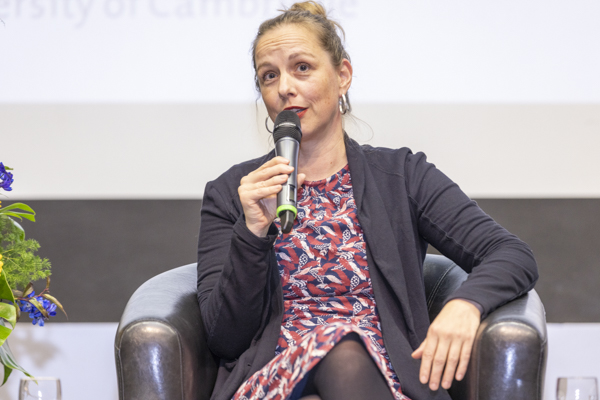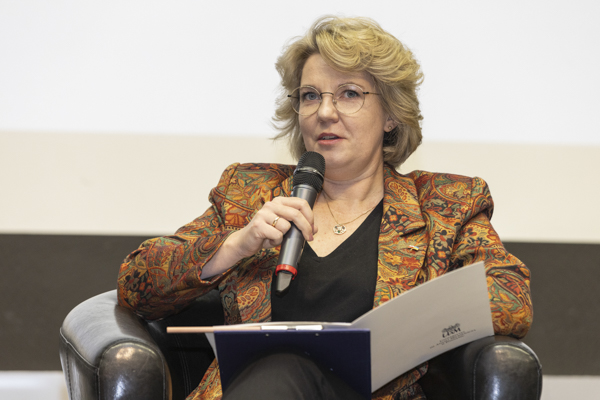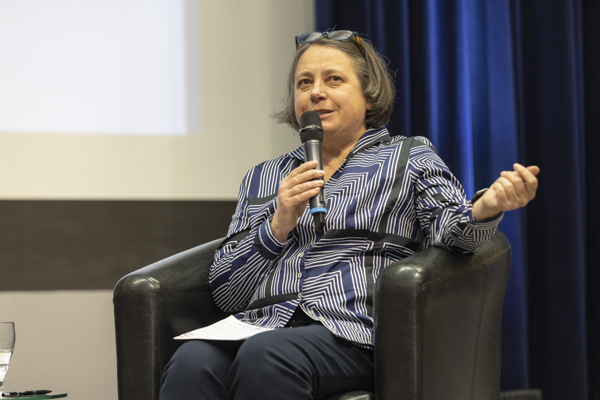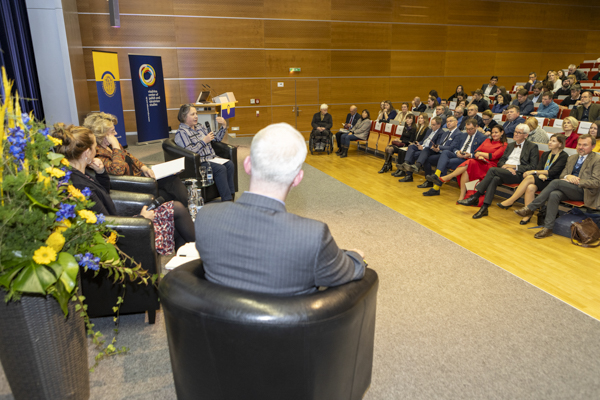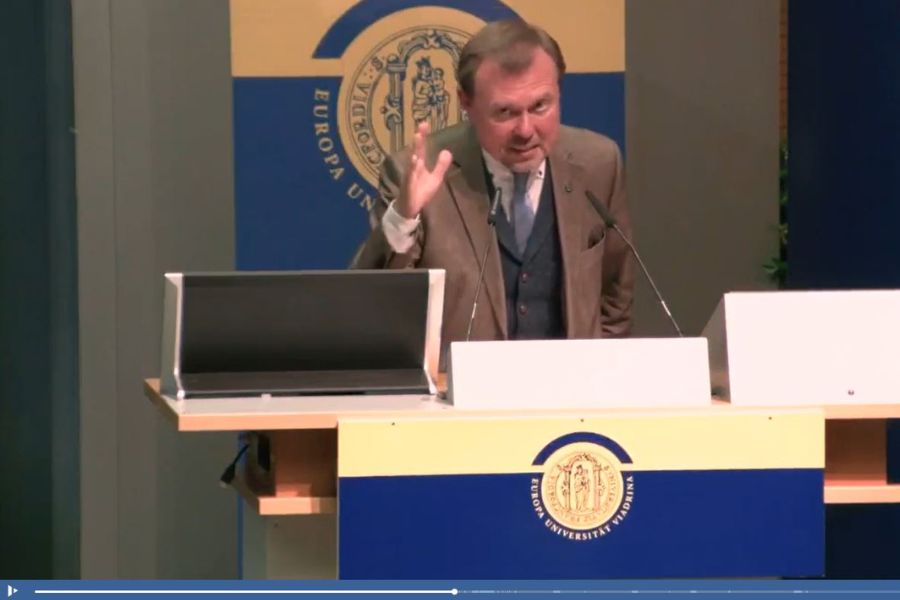A center tailored for the DNA of the Viadrina. Official ceremony and panel discussion to mark the inauguration of the Viadrina Center of Polish and Ukrainian Studies
On November 30, 2023, the Viadrina Center of Polish and Ukrainian Studies (VCPU) was inaugurated during a festive ceremony in the presence of prominent guests. A panel discussion on the question of what we can learn from Ukraine and Poland provided the audience with many thought-provoking impulses.
How does our academic understanding benefit from considering Poland and Ukraine as entangled entities? Does Germany need tutoring in being European? And finally: What does the ongoing war of aggression against Ukraine mean for the inauguration of a center of Polish and Ukrainian Studies? These questions were the focus of the opening ceremony of the VCPU, studded with high-caliber scholars, diplomats and politicians, and attended by around 300 guests from the Viadrina, the Brandenburg region and international partner institutions in the auditorium maximum and online via livestream.
“We are convinced that – especially under these extremely difficult conditions – academic quality is the primary mission of the Viadrina and our center; this includes open discussion and the path of understanding,” Prof. Dr. Andrii Portnov said in his key note speech. The historian and co-director of the VCPU emphasized the great potential of combining outstanding local expertise and a transregional, transnational approach.
In addition to the congratulations from Brandenburg’s Minister of Science Dr. Manja Schüle and the ambassadors of Poland and Ukraine to Germany, it was the congratulations extended by the scholars present that were particularly heartfelt. “This center is a great enrichment for German academia. Its visibility, including its name, is important in order to put Ukrainian Studies more firmly on the political agenda,” said Prof. Dr. Maren Röger, Director of the Leibniz Institute for the History and Culture of Eastern Europe in Leipzig. She was one of three experts in a panel discussion moderated by Prof. Dr. Rory Finnin, Professor of Ukrainian Studies at the University of Cambridge. Finnin emphasized that giving students the intellectual tools to learn more about Poland and Ukraine was part of everyday life for many in the room. “Today, on this panel, we don’t just want to learn about these countries, we want to learn with these countries. What do we gain if we take Poland and Ukraine very seriously – not just as objects of knowledge?” he asked, opening the discussion.
Dr. Katarzyna Jędraszczyk from Adam Mickiewicz University in Poznań began by highlighting what had not been learned in Europe. “We are watching a country fight for the most important ideals of the EU,” she said. Above all, we are now to learn from the indifference with which we stood idly by watching this battle unfold between 2014 and 2022. Dr. Tatiana Zhurzhenko, who works as a research fellow at the Centre for East European and International Studies (ZOiS) in Berlin, regarded her Ukrainian colleagues with admiration and solidarity. “We can learn resilience, resourcefulness, flexibility and professional commitment from them. It takes all of this not only to survive, but also to function creatively and professionally in this terrible situation.”
Like Poland more than 20 years ago, Ukraine is currently standing at the door of the European Union, waiting for accession negotiations. “Ukraine has been in this waiting room for a long time, which is lost time and a big political mistake,” said Tatiana Zhurzhenko. However, the waiting period could also be seen as a learning period. "Ukraine is an auto-didact, a self-taught European. We need to change our perspective and cease to see Ukraine as a newcomer."
Earlier on, Ambassador of Ukraine to Germany Oleksii Makeiev had jokingly announced that he would like to give a course on the topic of “How to be excited about the European Union” at the newly established center together with his Polish colleague. “As pro-European nations, we would like to teach you Germans to be proud of what the European Union and NATO have achieved,” said Makeiev, earning spontaneous applause.
At a press conference before the official ceremony, co-director of the VCPU, Prof. Dr. Dagmara Jajeśniak-Quast, had emphasized that the Viadrina and the new center understand themselves as European. “It is quite natural for us and as we see it as our mission to show that the events unfolding in Central and Eastern Europe are European processes,” she said. It is in the DNA of the Viadrina to look eastwards and see eye to eye with its Eastern European partners. The VCPU gives this endeavor a permanent, sustainable structure that intends to create new expertise, whilst pooling existing knowledge and making it more visible. She said, “We have no time to lose, we have already waited far too long.”
Read the media information about the inauguration ceremony with quotes from the opening speeches.
Rewatch the inauguration in a recording of the live stream
Text: Frauke Adesiyan
Fotos: Heide Fest
